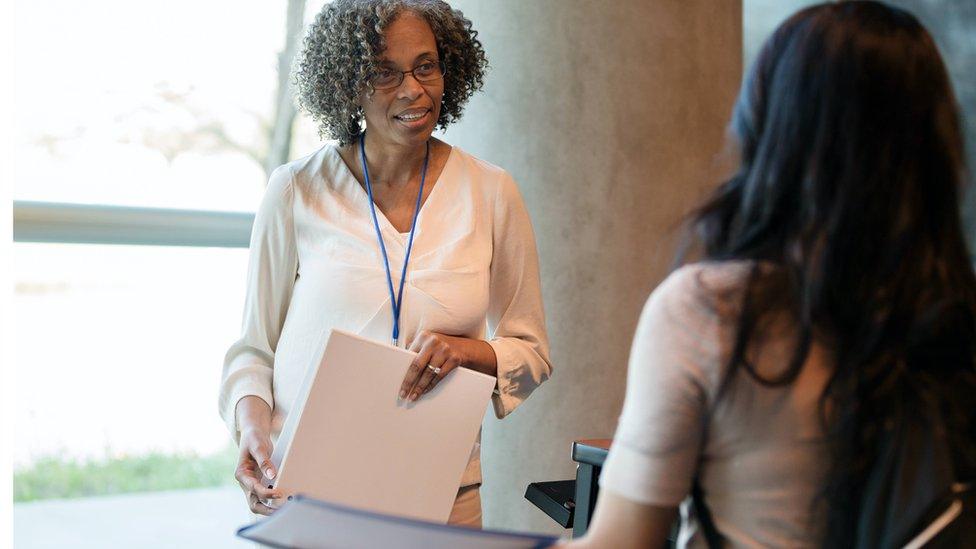Only 1% of UK university professors are black
- Published

Women and black academics remain under-represented at professor level
Only 155 out of more than 23,000 university professors in the UK are black, according to official figures.
It remains below 1%, the same as for the past five years, and is an increase of only 50 posts despite the number of professorships rising by more than 3,000 in that time.
At this senior academic level, women hold 28% of professorships, up from 23% five years ago.
"The pace of change is glacial," said lecturers' union leader Jo Grady.
"Universities must do more to ensure a more representative mix of staff at a senior level and stop this terrible waste of talent," said Dr Grady, general secretary of the UCU university union.
Campus problem
The figures on black professors were "disappointing" and "inexplicable", said Halima Begum, chief executive of the Runnymede Trust race equality think tank, "given the symbolic importance of education as the foundation of our values."
"Around a quarter of British postgraduates are from ethnic minorities, there is clearly no shortage of qualified black and minority academics seeking elevation to senior teaching and research roles in our universities," said Dr Begum.
She called on vice chancellors to take action over a problem they can "literally discern with their own eyes every single day they are on campus".
The annual figures, published by the Higher Education Statistics Agency, provide a breakdown of the UK's academic workforce - and show while there has been a focus on widening access for students, there are still few black academic staff.
At the level of professor, the number of black professors rose from 105 to 155 between 2014-15 to 2019-20.
But new higher education providers included in the figures meant an additional 3,200 staff at professor grade, with the proportion of black professors only increasing marginally from 0.5% to 0.7% over five years.
This compared to 7% of professors who are Asian and 89% white in the figures for 2019-20.
Kehinde Andrews, professor of black studies at Birmingham City University, said that rather than universities being "progressive dreamlands", the "make-up of professors is the perfect reflection of the narrow Eurocentric views still produced by universities".
"I have seen very few genuine attempts to address the issues of racism at any level across the sector," said Prof Andrews.
Gender gap
Among all academic staff, 2% are black, 10% are Asian, 75% are white, with the remainder under categories of "mixed", "other or not known".
There is still a significant gender gap in professorships, among a group that is also heavily skewed to older age groups, with most in their fifties, sixties and above.
Five years ago, more than 4,500 professors were women, which has risen to 6,300 - from 23% to 28% of these senior posts.
This is despite women representing 46% of all academic staff.
Baroness Amos, who was the UK's first black female university head, has previously warned of "deep-seated prejudices and stereotypes which need to be overcome" in the recruitment of senior staff in higher education.
Universities UK said "the evidence is clear that black and minority ethnic staff continue to be under-represented" at these senior academic levels.
"More needs to be done to address this inequality which exists within higher education, which mirrors inequalities evident in wider UK society and which will require an unequivocal commitment to change," said the universities' organisation.